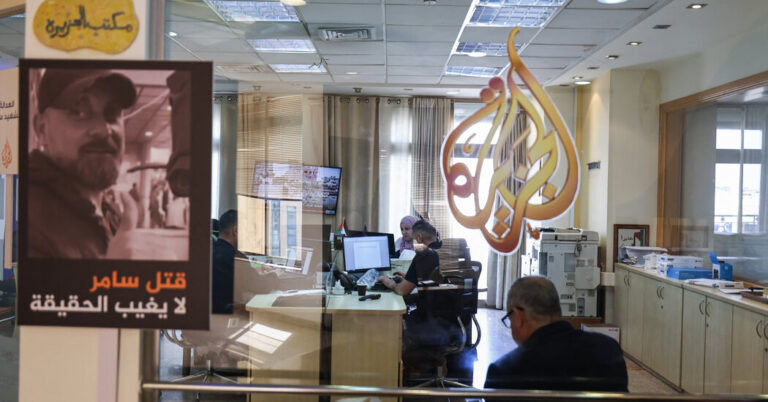A group representing the families of Israeli hostages in Gaza expressed concerns on Sunday that Israeli Prime Minister Benjamin Netanyahu, under pressure from the most radical members of his governing coalition, is trying to block or even sabotage a possible deal. which could lead to a ceasefire. fires and the release of captives held by Hamas.
A major sticking point in the negotiations has been Hamas’ consistent demand for a commitment from Israel to end its seven-month military offensive in Gaza and to renounce a planned invasion of Rafah, Hamas’ last stronghold. in the south of the enclave, and Israel’s reluctance to declare such concessions, according to the officials.
During the talks in Cairo, which were mediated by the United States, Qatar and Egypt, negotiators attempted to leave some room for ambiguity in the early stages of a three-phase deal likely to satisfy both parties.
But on Saturday, the Israeli government issued two statements to journalists, attributed to an anonymous “politician,” saying that contrary to reports, Israel would not agree to end the war as part of a deal. He added that he would not allow mediators to offer Hamas guarantees that the war would end, while accusing Hamas of scuppering any chance of an agreement by sticking to its demands.
Several Israeli journalists who received the statements said they came directly from the prime minister’s office, an unusual violation of government confidentiality rules.
Nahum Barnea, a prominent political columnist, said Sunday in Yediot Ahronot, a popular Hebrew daily, that he believed the statements were “intended to scuttle the chances of an agreement.”
The Hostage Families Forum, an Israeli non-governmental group that lobbies for the release of hostages and supports their families, said in a statement Sunday that it was “shocked” to hear the statements. The group called on Mr Netanyahu to “ignore all political pressure”, “lead” and “show courage”.
Mr. Barnea said he believed Mr. Netanyahu would be freed “from the need to decide” on a deal if Hamas, mediators and far-right members of his government could be persuaded that he would not There weren’t any on the table.
Mr. Netanyahu vehemently rejected the accusations on Sunday, saying in a longer statement, on his own behalf, that Hamas was the party standing in the way of a deal. “Israel was, and still is, ready to suspend fighting in order to free our hostages,” he said.
Although details of a potential deal are still being discussed, Egypt has pushed a proposal, with the general approval of Israeli negotiators, that would begin with a six-week truce, during which 33 of the hostages the most vulnerable detained in Gaza would be released. released in exchange for hundreds of Palestinians imprisoned by Israel.
Israel would allow hundreds of thousands of displaced Palestinian civilians to return to northern Gaza with few restrictions, officials said, previously a major sticking point for Israel.
Husam Badran, a senior Hamas official, said Saturday that the group’s representatives had arrived in Cairo “with great positivity” regarding the latest proposal. But Hamas officials told Arab media that issues such as a permanent ceasefire and the full withdrawal of Israeli troops from Gaza remained unresolved. As of Sunday morning, there was no indication yet that Hamas had accepted the deal.


